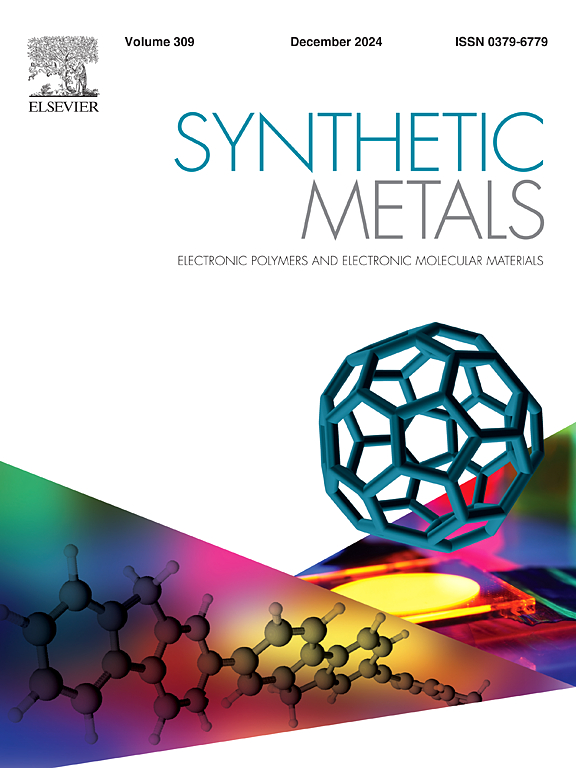Synergistic effects in mixed-dimensional CoSm2O4@SnS2@CNTs nanocomposites for enhanced asymmetric supercapacitors efficiency and hydrogen evolution reaction
IF 4.6
3区 材料科学
Q2 MATERIALS SCIENCE, MULTIDISCIPLINARY
引用次数: 0
Abstract
In this study, using a hydrothermal synthesis technique, we prepared cobalt samarium oxide (CoSm2O4) and incorporated it with SnS2 and CNTs. The composite electrode (CoSm2O4@SnS2@CNTs) demonstrated a specific capacity (Qs) of 949.71 C/g or 2110.21 F/g in a three-electrode system. In addition, we used CoSm2O4@SnS2@CNTs composite electrode with activated carbon (AC) to design an asymmetric supercapacitor device (CoSm2O4@SnS2@CNTs//AC). The asymmetric supercapacitor device exhibited a Qs of 156.19 C/g or 107.71 F/g, with an outstanding power density (Pd) of 1987 W Kg−1 and a remarkable energy density (Ed) of 47 Wh Kg−1. After undergoing 5000 cycles, the electrode demonstrated a capacity retention of 91.9 % along with a coulombic efficiency of 87.7 %. Besides, the CoSm2O4@SnS2@CNT nanocomposite electrode revealed a remarkable value of Tafel slope of 35 mV/dec and demonstrates a significantly lower overpotential of 39 mV in the hydrogen evolution reaction. The use of these two-dimensional composite electrodes presents novel possibilities for the creation of energy devices with exceptional performance.
混合维CoSm2O4@SnS2@CNTs纳米复合材料对增强不对称超级电容器效率和析氢反应的协同效应
在本研究中,我们采用水热合成技术制备了氧化钴钐(CoSm2O4),并将其掺入SnS2和CNTs。复合电极(CoSm2O4@SnS2@CNTs)在三电极体系中的比容量(Qs)为949.71 C/g或2110.21 F/g。此外,我们使用CoSm2O4@SnS2@CNTs复合电极与活性炭(AC)设计了一个不对称超级电容器器件(CoSm2O4@SnS2@CNTs//AC)。该非对称超级电容器器件的Qs为156.19 C/g或107.71 F/g,功率密度(Pd)为1987 W Kg−1,能量密度(Ed)为47 Wh Kg−1。经过5000次循环后,电极的容量保持率为91.9 %,库仑效率为87.7 %。此外,CoSm2O4@SnS2@CNT纳米复合电极的Tafel斜率显著为35 mV/dec,析氢反应的过电位显著降低为39 mV。这些二维复合电极的使用为创造具有卓越性能的能源装置提供了新的可能性。
本文章由计算机程序翻译,如有差异,请以英文原文为准。
求助全文
约1分钟内获得全文
求助全文
来源期刊

Synthetic Metals
工程技术-材料科学:综合
CiteScore
8.30
自引率
4.50%
发文量
189
审稿时长
33 days
期刊介绍:
This journal is an international medium for the rapid publication of original research papers, short communications and subject reviews dealing with research on and applications of electronic polymers and electronic molecular materials including novel carbon architectures. These functional materials have the properties of metals, semiconductors or magnets and are distinguishable from elemental and alloy/binary metals, semiconductors and magnets.
 求助内容:
求助内容: 应助结果提醒方式:
应助结果提醒方式:


